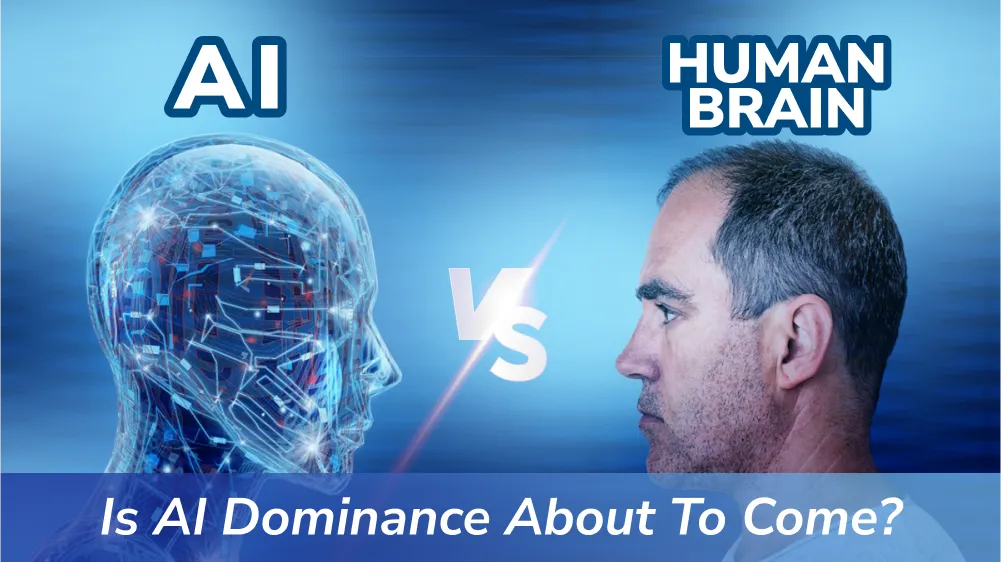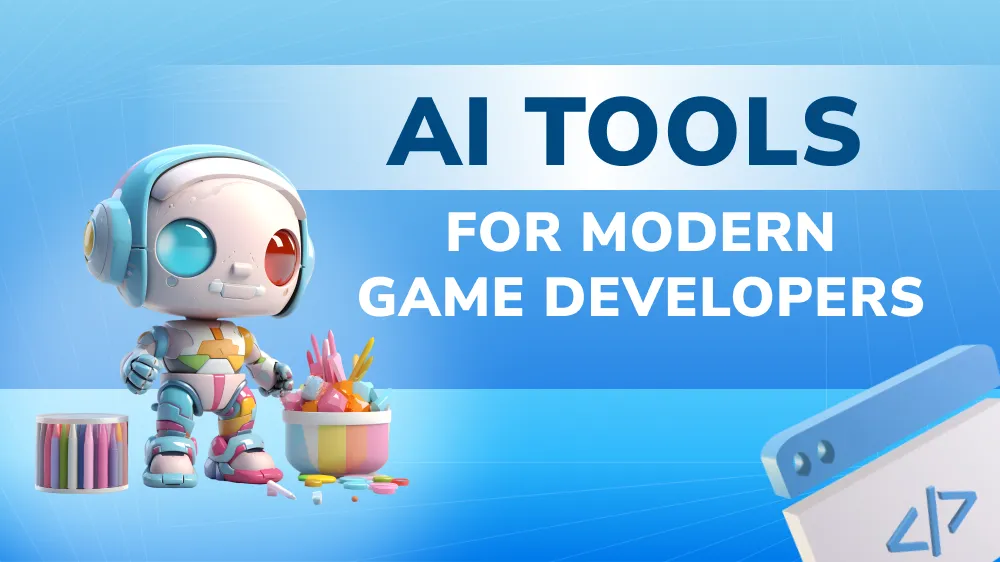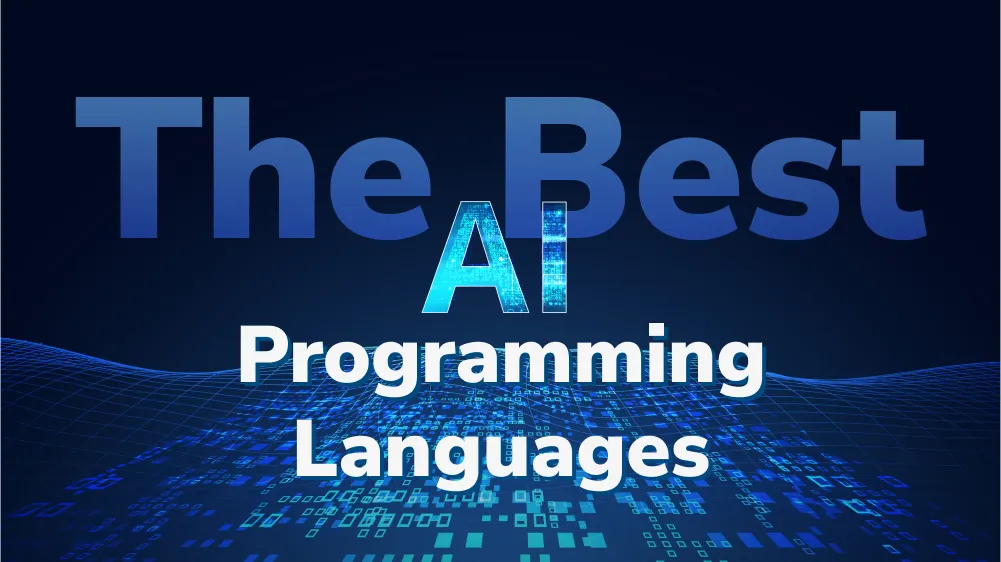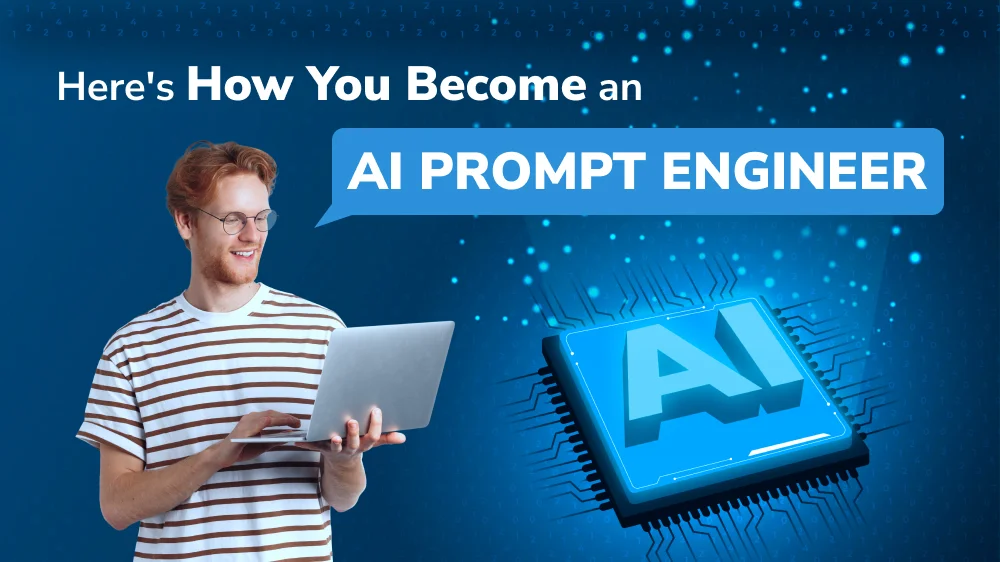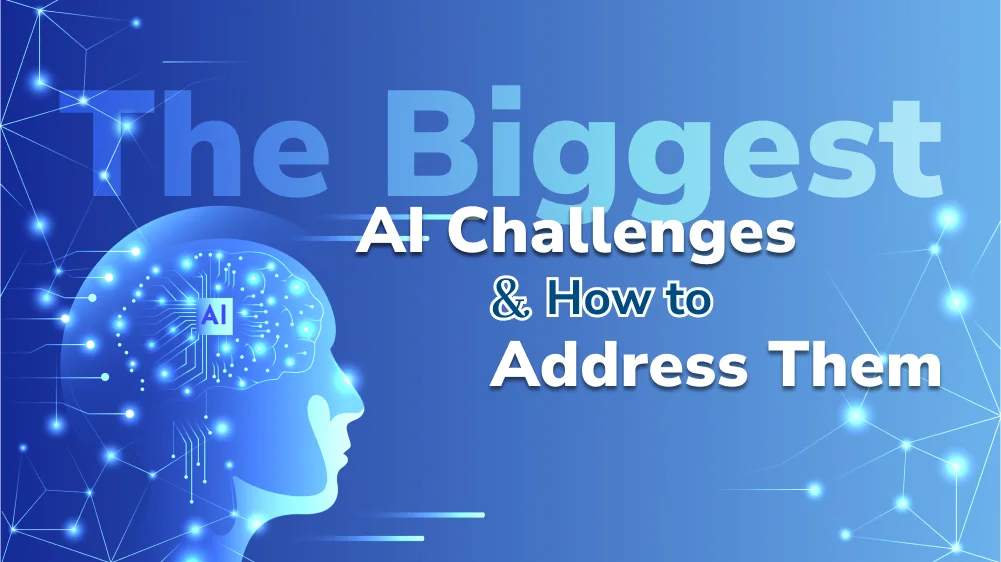Investigating the Exciting Future of Artificial Intelligence Adoption
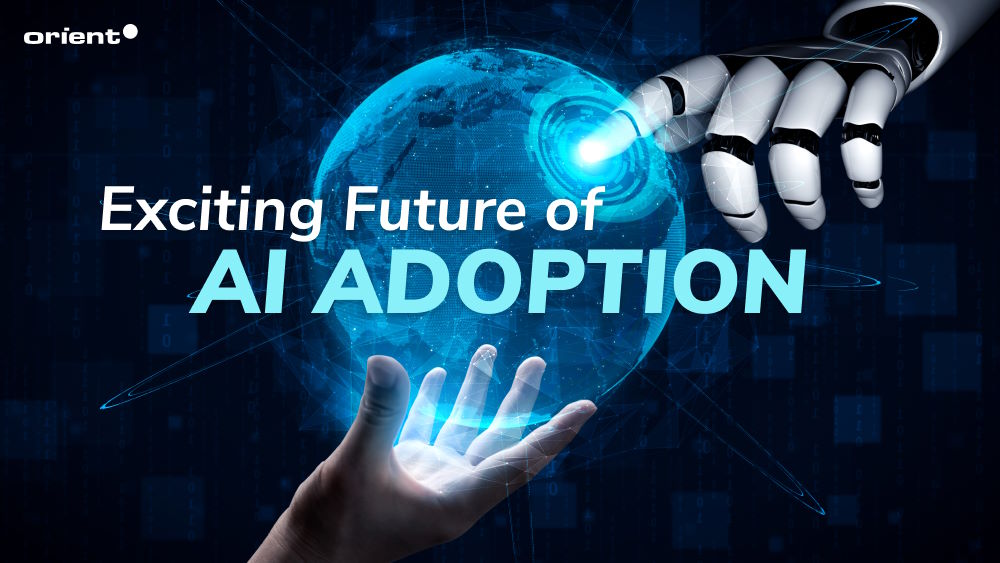
Content Map
More chaptersImagine a future where machines possess the power to think, learn, and make decisions like humans. A future where artificial intelligence (AI) has transcended the realm of science fiction and become an integral part of our daily lives. This future is closer than you might think. AI technology is rapidly gaining momentum, revolutionizing industries and shaping the way we live, work, and interact.
From virtual assistants and self-driving cars to personalized recommendations and predictive analytics, AI capabilities have already made significant strides in transforming various sectors. Its increasing significance cannot be understated. Business leaders across the globe are recognizing the potential of AI solutions to drive innovation, improve operational efficiency, and unlock new chances for business growth.
In this article, we embark on a journey to explore the promising future of AI adoption. We will delve into the current landscape of AI adoption, shedding light on the industries that have embraced AI talent and the transformative impact it has had on their operations. Furthermore, we will uncover emerging trends, potential applications, and the challenges that come with embracing AI.
Through this examination, we will paint a comprehensive picture of the transformative power of AI and its implications for business models and society as a whole.
Emerging Trends in AI Adoption
The field of artificial intelligence (AI) is constantly evolving, with new trends and developments shaping the landscape of AI adoption. It wouldn’t be overstating things to claim that many organizations today have implemented at least one function of AI technology. Let’s explore the latest trends and advancements that are driving widespread AI adoption across various industries.
Outstanding AI Technologies Have Been Adopted
- Machine Learning: One of the key factors fueling the growth of AI adoption is the rapid progress in digital technologies. Machine learning, a subset of AI, has witnessed significant advancements in recent years. Thanks to its capacity to process large amounts of data and recognize recurring trends, machine learning algorithms have become increasingly accurate and efficient. This has opened up new possibilities in areas such as predictive analytics, fraud detection, and personalized recommendations.
- Natural Language Processing (NLP): Another notable development is the advancement in natural language processing (NLP). NLP allows machines to understand and interpret human language, making it possible for chatbots like ChatGPT, virtual assistants, and voice recognition systems to communicate effectively with users. This breakthrough in NLP has revolutionized customer service, information retrieval, and language translation, among other applications.
- Computer Vision: Computer vision is yet another area of AI applications that has witnessed remarkable progress. With advancements in image recognition and object detection algorithms, machines can now analyze and interpret visual data with increasing accuracy. This has led to significant developments in industries such as healthcare, retail, and autonomous vehicles, where computer vision plays a crucial role in tasks like medical imaging, inventory management, and object recognition.
Industries that Have Actively Adopted AI Capabilities
As these AI technologies continue to advance, key industries have embraced them, reshaping their operations and opening up new possibilities.
- The Healthcare Industry: The healthcare industry has seen increasing adoption of AI in medical diagnostics, drug discovery, and patient care. AI-powered algorithms can analyze medical images, detect anomalies, and assist in disease diagnosis, leading to more accurate and timely treatments.
- The Finance Sector: The finance sector has also been quick to adopt AI, leveraging its capabilities for fraud detection, risk assessment, and algorithmic trading. AI algorithms can analyze financial data, identify patterns of fraudulent activities, and make real-time trading decisions based on market trends.
- Manufacturing, Retail, and Transportation Area: Moreover, industries such as manufacturing, retail, and transportation have harnessed the power of AI to optimize processes, improve supply chains and enhance customer experiences. AI-driven automation and predictive analytics have enabled businesses to streamline operations, automate repetitive tasks, reduce costs, and deliver personalized services to their customers.
These emerging trends in AI adoption are reshaping industries and opening up new possibilities. As AI technologies continue to advance, we can surely expect further breakthroughs and innovative applications in sectors ranging from agriculture and energy to education and entertainment. The future of AI adoption holds immense potential, and businesses that embrace these emerging trends stand to gain a better competitive advantage in the rapidly evolving digital landscape.
The Future Image of AI Adoption

Artificial intelligence has rapidly transformed numerous industries, revolutionizing the way we live and work. As we look ahead, the future of AI adoption holds even greater potential for growth and expansion. Here, we delve into the exciting possibilities that lie ahead, exploring emerging technologies, their impact on AI adoption, and the implications for the job market.
Potential Growth and Expansion of AI Adoption
AI adoption is poised for significant growth in the coming years. The advancements in AI algorithms, increased computing power, and the abundant availability of data are key drivers fueling this growth.
As organizations across industries recognize the transformative power of AI, they are increasingly investing in its development and integration. From healthcare to finance, manufacturing to retail, AI is being embraced as a strategic tool to enhance decision-making, drive innovation, and improve operational efficiency.
Emerging AI Technologies and Their Impact
The future of AI adoption will be shaped by emerging technologies that further empower its capabilities. One such technology is edge computing, which brings AI processing closer to the source of data generation. This enables real-time decision-making and reduces the reliance on cloud infrastructure, making AI more accessible and efficient in various applications, including IoT devices, autonomous vehicles, and smart cities.
Another technology poised to revolutionize AI adoption is quantum computing. Quantum computers offer immense computational power, enabling complex AI models to be trained and executed faster. This breakthrough will unlock new possibilities in areas such as drug discovery, optimization problems, and machine learning algorithms, propelling AI to unprecedented levels of sophistication.
Implications of AI Adoption on the Job Market
While the growth of AI adoption brings numerous benefits, it also raises concerns about its influence on the job market. AI has the potential to automate repetitive tasks, leading to workforce displacement in certain industries. However, it is important to note that AI adoption also creates new job opportunities and reshapes existing roles. As AI takes over mundane tasks, humans will be able to concentrate more on higher-value activities that require critical thinking, creativity, and emotional intelligence.
To thrive in the future job market, individuals will need to upskill and reskill themselves to adapt to the changing demands. Training programs and education that equip workers with AI-related skills will become increasingly important. Governments, educational institutions, and businesses must collaborate to ensure a smooth transition, fostering a culture of lifelong learning and providing resources for individuals to acquire the skills needed to work alongside AI.
In summary, the future of AI adoption is brimming with potential. As emerging technologies like edge computing and quantum computing continue to advance, AI will become more ingrained in our daily lives and industries. While the job market may undergo transformations, it is crucial to embrace the opportunities AI brings and prepare ourselves by upskilling and reskilling. By doing so, we can harness the power of AI to shape a future that is both technologically advanced and human-centric.
Overcoming Challenges in AI Adoption
The adoption of AI presents businesses with numerous opportunities for growth and innovation. However, most organizations struggle with the challenges of adopting AI as well.
Common Challenges in AI Adoption
- Data Privacy: Privacy concerns surrounding the collection, storage, and usage of data are a major challenge in AI adoption. Businesses must navigate complex regulations and ensure that data is handled securely and ethically.
- Ethical Considerations: The ethical implications of AI, such as bias, fairness, and transparency, are critical concerns. Ensuring that AI systems are designed and deployed ethically is essential to build trust with users and stakeholders.
- Integration Complexities: Integrating AI into existing systems and workflows can be a complex process. Compatibility issues, legacy systems, and resistance to change within organizations can pose significant challenges.
Strategies to Overcome Challenges
- Prioritize Data Privacy: Businesses should implement robust data privacy policies and practices. This includes obtaining user consent, anonymizing data when possible, and using encryption and secure storage methods. Adhering to relevant data protection regulations and industry standards like a DPA (Data Processing Agreement) is essential.
- Implement Ethical AI Frameworks: Developing and adhering to ethical AI frameworks helps address concerns related to bias, fairness, and transparency. AI systems should be designed to limit discrimination, incorporate explainability, and undergo rigorous testing and validation.
- Plan for Integration: A well-thought-out integration plan is crucial for successful AI adoption. This involves conducting thorough assessments of existing systems, identifying key integration points, and allocating resources for necessary upgrades or modifications. Collaboration between IT and business teams is vital to streamline the integration process.
The Key to Implementing AI Adoption Successfully
Partnerships and collaboration play a climactic role in overcoming challenges in AI adoption. By working together, businesses can leverage the expertise and resources of technology providers, domain experts, and regulatory bodies. Key considerations include:
- Technology Partnerships: Collaborating with AI technology providers can help businesses access cutting-edge tools, expertise, and support. Partnerships can facilitate smoother integration, mitigate risks, and accelerate the adoption process.
- Cross-functional Collaboration: AI adoption is not solely an IT initiative; it requires collaboration across departments. Engaging stakeholders from different areas, such as legal, compliance, and marketing, ensures a holistic approach to addressing challenges and aligning AI initiatives with business goals.
- Industry Collaboration: Sharing best practices, standards, and experiences through industry collaborations and consortiums can help establish guidelines for responsible AI adoption. This fosters a collective effort to address challenges and drive the ethical and effective use of AI.
Conclusion
It is important to recognize the transformative potential of AI adoption for businesses and society as a whole. AI has the power to drive innovation, enhance decision-making, and improve operational efficiency across industries. By embracing AI, organizations can gain a better competitive edge and unlock new opportunities for development and success.
To stay at the forefront of AI advancements and opportunities, it is crucial to remain informed and connected to reliable AI technology providers. Orient Software, as an outsourcing AI technology provider, offers comprehensive solutions and a dedicated development team in AI adoption. We can help businesses navigate the complexities of AI integration and leverage the full potential of this transformative technology.
Let us embrace the future of AI adoption. Stay informed about the latest advancements, and consider Orient Software as a trusted partner in harnessing the power of AI for business success. Together, we can shape a future where AI and human collaboration drive innovation, growth, and positive change.

